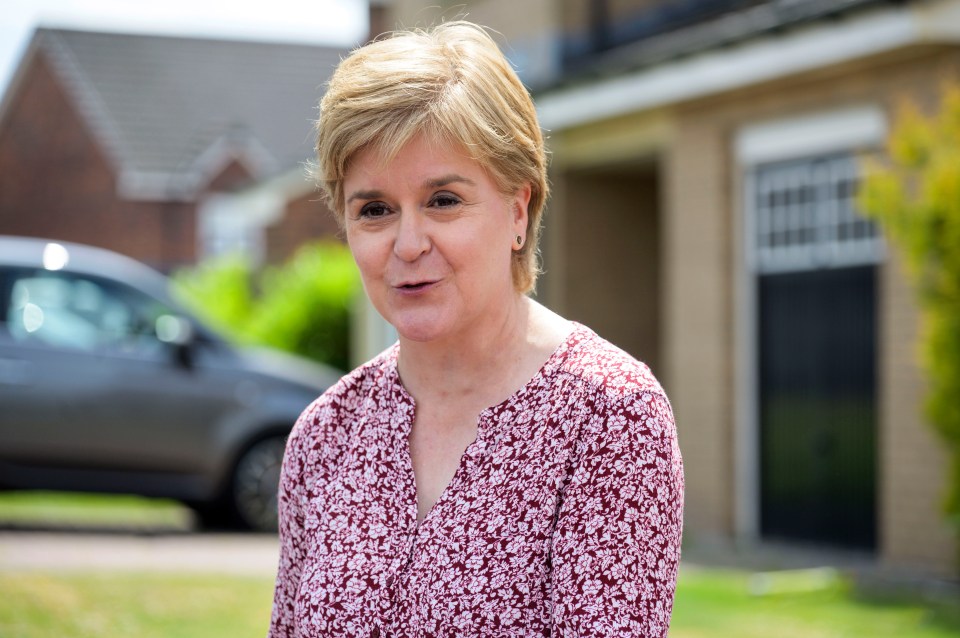The Scottish Nationals may never be able to recover Sturgeon’s lost ground

The Scottish Nationals have let their party fall into a slump recently, and still have too many questions to answer about how the independence they want would look like, writes Eliot Wilson
Last week saw the death, at the age of 93, of Winifred Ewing. One of the few bona fide giants of Scottish nationalism, she shook the political world in 1967 by snatching the previously safe Labour constituency of Hamilton in a by-election, telling crowds after her victory, “Stop the world, Scotland wants to get on”. Although she lost the seat at the subsequent general election, she was back in the Commons from 1974 to 1979, representing Moray and Nairn, then sat in the European Parliament from 1979 to 1999, where she was known as “Madame Écosse”.
Her apogee as well as her political swansong came in 1999, when she was elected to the new Scottish Parliament, and as the oldest member, she presided over its opening session, declaring “Now I can say the words I have always wanted to say: the Scottish Parliament, adjourned on the 25th day of March in the year 1707, is hereby reconvened.” She stood down at the end of that first term, by which time her son and daughter-in-law were both MSPs, and her daughter Annabelle was an MP at Westminster.
Ewing was a big figure with a big dream: a separate Scotland. Much of her electoral success was due to her own fierce and formidable personality as well as her party politics, at the core of which was the goal of independence. She resisted attempts to pull the SNP to the left and adopt an almost off-the-peg democratic socialist agenda.
Last November marked the 55th anniversary of the Hamilton by-election. And last weekend, SNP activists gathered in Dundee for a “Convention on Independence”, under their new leader and first minister, Humza Yousaf. For all the breathless prose of their copywriter, the meeting had a modest motivation: “a summer programme of independence campaigning activity”, including leafleting and canvassing, culminating in their annual party conference at which they would… decide their independence strategy. Fifty-five years since Winnie won in Hamilton, remember.
Much has changed, of course, including the SNP entering government in 2007 and the vanquishing, for the moment, of Scottish Labour. Yet on the central point of their agenda, their very raison d’être, independence, the nationalists are still “thinking about it”, with only a referendum defeat to show for it. How has the party come, on one objective measure, so little distance in more than half a century?
To one extent, the SNP is finally showing the fatigue which sets into almost any long-serving government. This has been made all the more obvious by the recent legal wranglings, with the former first minister, Nicola Sturgeon, and her husband being arrested and questioned by police about the SNP’s finances. It has not helped that Sturgeon was succeeded by the flimsy figure of Humza Yousaf, whose only “real world” experience is five months in a call centre. A glance round the Scottish cabinet table does nothing to lift the spirits or stir the soul of Braveheart.
The SNP has fallen into a slump in recent months. Since the end of 2022, when it was achieving 50 per cent in the polls, it is now hovering in the mid- to high-thirties, only a handful of points ahead of Labour. In the same period, there has been a narrow but largely consistent lead in opposing Scottish independence. The referendum for which some Scottish nationalists are so hungry would likely return a safe “No”at current polling.
The party of independence still has so many questions to answer: what would Scotland’s currency be, a simple adoption of sterling and the monetary policy of the Bank of England, or a more bespoke solution? Would Scotland join NATO? What would its institutions look like, as a constitutional monarchy? How would it deal with legacy debt and liabilities?
There have been few answers on these subjects. It may be a reflection of the fact that the electorate was stunned by Covid-19 and anxious at the cost of living, so an idea like creating an independent state may seem a distant and theoretical prospect. The relentless blame-shifting, heaping responsibility for everything on to “the Westminster Parliament” and the hated “Toaries”, is certainly wearing thin.
Can Yousaf shake off this torpor and rediscover the party’s drive and energy? I wouldn’t be placing bets. To quote the Ploughman Poet, Robert Burns, the nationalists may have “a chield amang them”, but there’s no evidence he’s been takin’ notes.